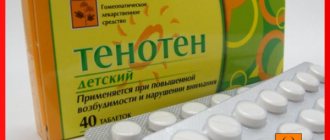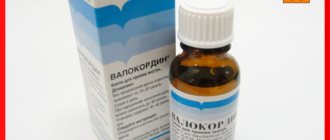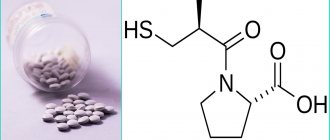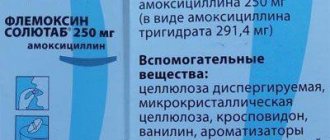An overdose of Captopril is possible if medical recommendations are violated or if the drug is used independently. The medication effectively relieves high blood pressure and is often sold in pharmacies without a prescription. Therefore, it can be used by a person who does not have sufficient indications for systematic treatment, which becomes the cause of intoxication.
ICD 10 code T36-T50.
Who is Captopril contraindicated for?
Improper storage of the medicine leads to acute intoxication in children with severe complications. The action of the component is to lower blood pressure. After taking 1 tablet, a child begins to experience hypotension, a sharp drop in blood pressure and a change in heart rate.
Captopril has a lot of contraindications and is dangerous if used without the approval of a specialist - the risk of overdose increases.
Cardiac ischemia
Captopril should not be used if a person has:
- chronic pathologies of the urinary system;
- autoimmune diseases;
- endocrine system disorders;
- renal failure;
- pregnancy, breastfeeding;
- Quincke's edema;
- coronary heart disease;
- potassium deficiency.
Attention! The drug is not used by patients under 18 years of age. It is prohibited for use by pregnant women - the active component of the medicine causes disruption of fetal development.
Drug dosage
It is not advisable to bite or chew the tablet. Take the medication with ½ glass of water. The dosage regimen is individual for each person. Before prescribing, the doctor considers the clinical picture and the presence of kidney pathologies.
It is necessary to start treatment with a single dose of 6.25-12.5 mg. Frequency of application 2-3 times a day. If the clinical picture does not improve, the dosage is increased to 25-50 mg 3 times a day. If kidney function is impaired, the dose is reduced. The daily intake should not exceed 150 mg.
Do not increase the dosage to lower blood pressure. The desired effect does not occur, and the likelihood of complications is high. The lethal dose of the drug is 10-20 g for an adult patient with average body weight.
Side effects
Captopril, if the rules of use are not followed, can lead to negative phenomena:
- disorders of the liver and kidneys;
- rapid heartbeat;
- dry cough;
- myocardial infarction;
- ailments, sleep disorders, dizziness;
- burning, itching;
- headache;
- unpleasant sensations in the epigastrium;
- metallic taste in the mouth;
- swelling of the face, tongue;
- pain in the throat, chest;
- fever.
If the above symptoms are present, the use of Captopril is discontinued.
Side effects
During treatment with the drug, the patient may experience various side effects. From the central nervous system - headaches, fatigue, lethargy. From the digestive system - diarrhea, poor appetite, heartburn, nausea. In addition, renal function deteriorates and tachycardia appears. If symptoms do not go away for a long time, the patient should definitely visit a specialist to decide whether to discontinue the drug.
Read what can happen with an overdose of Capoten: symptoms, consequences.
Find out what an overdose of Enalapril leads to: symptoms of intoxication, first aid.
All about Validol overdose: causes, signs, first aid, treatment.
Possible causes of intoxication
Captopril poisoning occurs due to non-compliance with the rules of administration or ignoring contraindications. The causes of intoxication are:
- self-medication;
- prolonged use of medication;
- genetic disorders of pigment metabolism;
- parallel use of medications that contain a similar active substance;
- non-compliance with the treatment regimen recommended by the doctor;
- taking a product with an expired expiration date;
- use of Captopril in the presence of kidney disease;
- susceptibility to the components of the drug;
- careless administration of medication by a child.
Intoxication with antihypertensive medications is possible when combined with medications: Probenecid, Cyclosporine, Interferon, Orlistat, Allopurinol, etc.
How does alcohol affect the effect of the drug?
The causes of death were simultaneous treatment with Captopril and alcohol consumption. Alcoholic drinks enhance the effect of the medication and interfere with the absorption of potassium - deviations lead to hypokalemia.
Contraindications
Before taking the medicine, you should study in advance the features of the drug Captopril, contraindications to its use and possible complications.
Therapy cannot be carried out in the following cases:
- age up to 18 years,
- gestation period,
- breast-feeding,
- disruption of blood flow from the heart muscle,
- recent kidney transplant,
- narrowing of the renal arteries,
- liver dysfunction,
- high potassium levels in the blood,
- kidney dysfunction,
- hypotension,
- individual intolerance to the component.
Symptoms and consequences of poisoning
When following all medical prescriptions, there is a risk of overdose due to the formation of an imbalance of microelements in the body. In order to prevent intoxication, it is necessary to regularly monitor the level of sodium and potassium. Intoxication can be acute or chronic.
An unfavorable manifestation of Captopril is photosensitivity. With prolonged use of the medicine in small doses, spots appear on the skin, which appear with prolonged exposure to the sun.
The appearance of goosebumps
Excessing the permissible dose by 1 tablet causes the following symptoms:
- orthostatic hypotension, sudden decrease in blood pressure;
- dizziness, migraine, loss of coordination;
- noticeable swelling of the limbs;
- changes in urination and urine color;
- weakness, malaise, fatigue;
- bronchial spasms;
- the appearance of goosebumps;
- indigestion (flatulence, vomiting, nausea);
- dry cough, sore throat.
Features of the symptoms of the chronic form of drug poisoning include the development of acidosis. This condition causes diarrhea, heartburn, and loss of appetite.
The patient has rapid breathing and the smell of acetone from the mouth. An overdose contributes to the appearance of gastric and duodenal ulcers and hemorrhagic cystitis.
The amount of acid in human sweat increases and provokes eczema and hives. Due to changes in the water-salt balance, salts are deposited in the joints, which can lead to gout and arthrosis.
Analogs
There are some analogs of the drug Captopril on sale that have a similar effect. Therefore, it is recommended to study what can replace therapy if necessary.
Captopril and existing analogues:
- Andipal is a previous generation antihypertensive drug that can effectively reduce not only blood pressure levels, but also eliminate fever and spasms. If we consider which is better, Captopril or Andipal, then we can confidently say that the first one, since it has fewer side effects and has a more gentle effect on hypertension.
- Corinfar - this remedy also lowers blood pressure, but has certain restrictions in taking no more than 85 heart beats per minute. If this indicator changes upward, you cannot use the drug. Also, compared to Captopril, it has stronger side effects, and also contributes to a sharp decrease in pressure, which is beneficial only in cases of hypertensive crisis, and in other cases has a negative effect on the functioning of many organs.
- Amlodipine is a drug effective in lowering high blood pressure. But at the same time it has an extended list of side effects, such as swelling of the extremities, impaired carbohydrate metabolism, and dizziness.
- Nifedipine is a drug of the previous generation. Quite often prescribed for the treatment of hypertension. The wide distribution is explained by the fact that the product can be taken every day, 1 tablet, since the effectiveness remains for 24 hours. Inferior to Captopril in that it is ineffective in hypertensive crisis.
- Lisinopril is also an ACE inhibitor and therefore has a similar effect. Therefore, there is no need to say that Lisinopril or Captopril is better.
- Anaprilin is a drug that reduces blood pressure by reducing the heart rate. Therefore, the compatibility of Anaprilin with Captopril allows you to achieve a high treatment result.
- Kaptopress – the drug has a pronounced hypotensive and diuretic effect. The difference between Captopress and Captopril is that the medicine has two active ingredients - Captopril and hydrochlorothiazide.
The choice of drug for the treatment of hypertension should be made by a doctor, since self-medication can not only be ineffective, but also provoke a serious deterioration of the situation.
First aid for overdose
The danger of captopril poisoning lies in a drop in blood pressure. This condition can lead to coma. If you feel worse, you should call a doctor and tell them about the use of the medicine.
Before the ambulance arrives, the following actions must be taken:
- Dissolve potassium permanganate in 1 liter of water (you should get a light pink solution). Give the victim a drink and induce vomiting until clear liquid comes out of the stomach.
- Afterwards, the patient needs to drink sweet, strong tea.
- Take absorbent sorbents (Activated carbon, Polysorb).
In the hospital, a person is given a blood substitute and a saline solution to normalize blood circulation. Symptomatic therapy is carried out to restore the function of internal organs and systems. Adrenaline is administered, which increases blood pressure, antihistamines, pacemakers, and hemodialysis is rarely performed.
Prevention
To eliminate the risk of captopril poisoning, you must follow the following recommendations:
- keep the tablets in a place where they cannot be reached by children, patients with mental disorders or impaired vision;
- do not exceed therapeutic dosages;
- do not take medicine that has expired or has been stored incorrectly;
- Tell your doctor about all medications you are taking, as some of them may interact with Captopril and cause an overdose.
The antihypertensive drug is available by prescription, so self-medication is prohibited. The doctor will tell you how many tablets you need to take for the therapeutic effect to occur.
The lethal dose of Captopril for humans is unknown, therefore it is not recommended to violate the treatment regimen.
Treatment and effect
Normal blood pressure
With regular use of the drug, the result is noticeable, which is expressed in the normalization of blood pressure. Effective in the treatment of the nervous and endocrine systems. The result is noticeable within an hour after administration. To normalize the condition, the medication is used for 30 days. Captopril promotes vasodilation and reduces the load on the heart.
The medicine increases renal blood flow and is prescribed to eliminate diabetic nephropathy. Used as a separate remedy or in combination with other drugs. When using simultaneously, you should be careful - many medications can lead to an overdose, for example, calcium duct blockers, diuretics.
Information about the drug
Captopril is produced in tablets by several companies, so the composition of their additional components may vary significantly.
The drug belongs to the ACE inhibitor class. Once inside the body, it blocks the formation of angiotensin II, which causes vasoconstriction and the production of aldosterone. During treatment, blood supply to the heart muscle and kidneys improves, and platelet aggregation decreases.
The medication causes a decrease in blood pressure, reduces afterload and preload on the heart, and increases its resistance to physical stress. With long-term treatment, left ventricular hypertrophy decreases, the progression of heart failure slows down, and the likelihood of developing diabetic nephropathy decreases.
After oral administration, the medicine is quickly absorbed from the digestive tract. The rate of absorption decreases when taking the medication simultaneously with food, then the antihypertensive drug begins to act more slowly. The time to reach maximum concentration can vary from half an hour to 1.5 hours. Up to 30% of the taken dosage interacts with blood proteins. The medication is metabolized in the liver and excreted in breast milk.
The half-life of the drug is less than 3 hours; if the patient has kidney dysfunction, it can increase to 32 hours.
Captopril is excreted from the body mainly through urine. If a patient is diagnosed with chronic renal failure, the antihypertensive drug accumulates in the body.
Precautionary measures
The dose is set individually and depends on body weight. For 1 kg of weight you need 2 mg of the substance.
People taking the medicine should have their kidneys checked first. About 1 in 5 patients have increased protein in their urine. If the daily norm reaches 1 g, you need to stop treatment.
Captopril is used with great caution when:
- pathologies of the walls of blood vessels, which cause their destruction;
- taking immunosuppressants;
- inflammatory damage to connective tissue;
- desensitizing treatment.
Important! Precautionary measures should not be neglected.
Indications for use
Experts say that Captopril is effective as an emergency aid for hypertensive crisis, when blood pressure levels are at a critical level of more than 160/100 mm Hg. Art. The medicine allows you to stop further deterioration of the situation.
In addition, the indications for Captopril are the presence of the following pathologies:
- hypertonic disease,
- diffuse connective tissue damage or systemic lupus erythematosus,
- insulin-dependent diabetes and nephropathy,
- congestive heart failure.
Sometimes the indication for the use of the drug is the patient’s recovery after a heart attack, but provided that the patient’s condition is satisfactory to normalize the functioning of the left ventricle of the heart.
Left ventricular hypertrophy on the ECG: recommendations from a cardiologist
The left ventricle is the part of the heart that, when contracting, pumps blood into the aorta. This is the main chamber of the heart, providing blood flow throughout the body. Left ventricular hypertrophy is an increase in mass, thickening of its wall. Often, at the same time, an expansion of the cavity of the left ventricle occurs - its dilatation. Hypertrophy is both an anatomical and electrocardiographic term. Anatomical hypertrophy of the left ventricle is manifested on the electrocardiogram (ECG) by a number of signs. A functional diagnostics doctor or cardiologist takes into account the number and severity of such signs. There are several diagnostic criteria that more or less correctly identify hypertrophy (from 60 to 90% probability). Therefore, not all people with signs of left ventricular hypertrophy on the ECG actually have it. Not all patients with anatomical hypertrophy show it on the ECG. Moreover, the same ECG can be described differently by different doctors if they use different diagnostic criteria in their work.
What diseases does this happen in?
- Left ventricular hypertrophy occurs in young people who are constantly involved in sports. Their heart muscle works intensely during training and naturally increases its mass and volume;
- occurs in diseases associated with difficulty in the exit of blood from the left ventricle into the aorta and with an increase in vascular resistance in the body;
- this ECG sign may be the first symptom of severe heart defects - aortic stenosis and aortic insufficiency. These diseases cause deformation of the valve separating the left ventricle and the aorta. The heart works under a heavy load, but the myocardium copes with it for a long time. A sick person does not feel any discomfort for a long time;
- Left ventricular hypertrophy occurs in a serious disease – hypertrophic cardiomyopathy. This disease is manifested by severe thickening of the walls of the heart. Thickened walls “block” the exit from the left ventricle, and the heart works under load. The disease does not appear immediately; shortness of breath and swelling gradually appear. In advanced cases, this disease may be an indication for heart transplantation.
- This is one of the manifestations of heart damage due to arterial hypertension. It can also develop with a moderate but constant increase in pressure. It is precisely to stop the progression of left ventricular hypertrophy that recommendations are aimed at constantly taking medications for hypertension, even with normal pressure.
- may appear in older people with severe atherosclerosis of the heart valves. This narrows the opening from the left ventricle into the aorta.
Characteristics of the drug
Angiotensin II contained in Captopril is a hormone that produces the effect of narrowing blood vessels. The substance retains sodium in the human body.
Captopril should be used for course therapy. The duration of the course and the amount of medication (how many tablets) are selected by the doctor depending on the medical history and characteristics of the patient’s body.
Lethal dose
The instructions clearly indicate the norms for taking Captopril:
- For arterial hypertension, 25 mg 2 times a day is recommended.
- If necessary, the amount of the drug is increased gradually, but no more than 150 mg per day is allowed.
We recommend reading: The most effective remedies for treating pneumonia at home
Failure to comply with this rule, especially in the case of kidney pathologies, leads to an overdose, which can result in the death of a person.
Lethal doses of drugs for the treatment of cardiovascular diseases
Such drugs are always in the medicine cabinet of older people. Overdoses of these drugs occur during self-treatment, when side effects and contraindications are not taken into account.
Such drugs are always in the medicine cabinet of older people. Overdoses of these drugs occur during self-treatment, when side effects and contraindications are not taken into account.
Let's work together to make the unique material even better, and after reading it, we ask you to repost it on a social network convenient for you. net.











